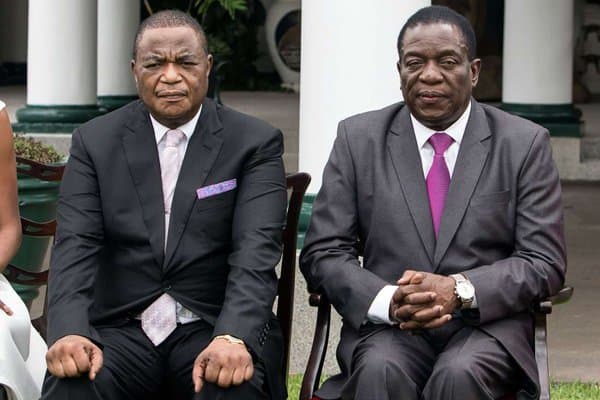Events in Harare today show that President Emmerson Mnangagwa is not in charge of the country’s security forces and there is a possibility that someone else has powers to deploy the army and police without consultation with the head of state and government.
This comes after riot police walked into Harare’s Bronte Garden Hotel and ordered journalists to leave just before Mr Chamisa’s press conference was due to start at 2pm.
Emmerson Mnangagwa was not even aware of the police operation.
The incident raises questions about Mr Mnangagwa’s control of the security forces and about divisions within the Zimbabwean government.
Mnangagwa later issued a statement showing he was surprised that someone in government had sent police to disrupt Nelson Chamisa’s press conference without his permission.
Said Mnangagwa:
“The scenes today at the Bronte Hotel have no place in our society and we are urgently investigating the matter to understand exactly what happened. Over the past nine months we have protected freedom of speech, of assembly and the right to criticise the government.
“This is an indispensable part of the new Zimbabwe. It is non-negotiable and will not change. We won the election freely and fairly, and have nothing to hide or fear. Anyone is free to address the media at any time.”
Many are already speculating that the same person who sent riot police to block foreign journalist might be the same person behind recent military atrocities in Harare that left at least 6 people dead.
The question is who is it?
Is it Chiwenga, Shiri, Mohadi or Obert Mpofu?
Mnangagwa was declared presidential election winner early this morning by ZEC.
The Zimbabwe election pattern is typical of what is known in academic literature as “competitive authoritarianism.” Russia and Turkey recently held similar elections.
Despite fashionable gimmicks such as biometric voter registration, this was a typical authoritarian election campaign with international observers noting voter coercion, the use of government resources to buy votes, ruling-party control of the media and a lack of transparency on the part of the Zimbabwe Electoral Commission.













